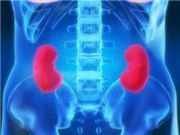Article
Alternate Testing Option for Patients with a Failed Kidney Transplant
Author(s):
For patients with kidney transplants, a urine test could detect dysfunction easier than by invasive measures, according to a study published in the March issue of the Journal of the American Society of Nephrology.

For patients with kidney transplants, a urine test could detect dysfunction easier than by invasive measures, according to a study published in the March 2014 issue of the Journal of the American Society of Nephrology.
Currently, there are no available non-invasive blood or urine tests that can decipher what type of dysfunction a kidney transplant patient is experiencing. Instead, patients must undergo needle biopsies to find answers.
To discern whether certain urinary cell messenger RNAs (mRNAs) are an identifier of kidney dysfunction, researchers at Weill Cornell Medical College analyzed urine samples of 52 patients with biopsy samples indicating acute rejection and 32 patients with acute tubular injury without acute rejection.
“In a decision analysis, the 6-gene signature yielded the highest net benefit across a range of reasonable threshold probabilities for biopsy,” the authors wrote. The combination of mRNAs CD3ε, CD105, TLR4, CD14, complement factor B, and vimentin could detect the occurrence of rejection but also the specific type.
Thangamani Muthukumar, Stanton Griffis Distinguished Professor of Medicine at Weill Cornell Medical College, said his and his team’s discovery would provide more efficient measures to detect dysfunction in kidney transplant patients.
“Our study shows that when the creatinine level is elevated in the blood of a kidney transplant recipient, use of our urine test would differentiate the common causes of kidney dysfunction that led to the elevation in creatinine, hence benefiting many patients by allowing them to avoid the need for an invasive needle biopsy,” Muthukumar said.




